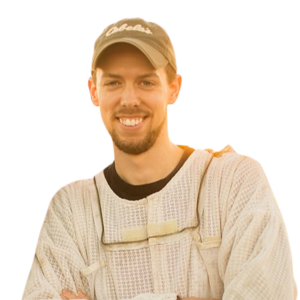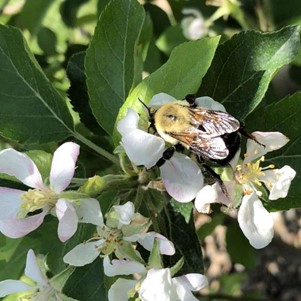THE BEEKEEPER’S VOICE
This voice cannot be left to someone else.
By: Michele Colopy
The knowledge of 40, 50, and 60 years of beekeeping is valuable. Beekeeping knowledge passed across two, three, and four generations qualifies as long-term research. For research is observation, cause and effect, analysis of actions which is typically practiced by beekeepers, and especially those across decades and generations. An academic degree does not make an expert. Forty years of experience is akin to an experiential PhD in the academic world. The beekeeper’s voice needs to be stronger, and heard much more often.
The bee industry can lead the way on issues and policies of concern to beekeepers. However, the bee industry needs the support of beekeepers to show wide-spread support of beekeeping issues and policies. Just because the bee industry sends a letter to EPA, USDA, or Congressional policy leaders is not the end of the beekeeper’s voice. Members of each national beekeeping group need to follow-up the bee industry support with their individual support to regulators and policy leaders. One comment letter, one support letter typically represents ten letters not sent. Your one letter can represent ten beekeepers; ten letters can represent one hundred beekeepers.
Letters, emails, petitions and similar advocacy for honey bees and beekeeping is important to educate your local policy makers about the issues affecting honey bees and beekeeping. The mission of every beekeeping group is to educate about beekeeping. Beekeepers must educate their policy leaders (local, state, and federal), and they must educate regulators (County and State Agricultural Depts., USDA, EPA, etc.) about the issues affecting beekeepers. When the beekeepers are not “at the table,” rules get enacted stating pollinators do not forage when it is less than 55 degrees, or that they stop foraging after 3:00 p.m. A few beekeepers cannot make needed change for all of us. It takes all of us to make the needed change. While your honey bees may not be suffering pesticide bee kills, other beekeepers are experiencing these losses. While your city applies mosquito controls to protect pollinators (applying chemical controls at night, only if West Nile virus or EEE has been found in mosquitos), other communities make blanket applications as a preventive, and apply the products during the day when bees are foraging. Beekeepers need to be involved in more than just their local beekeeping group, but also their local Farm Bureau, County Health Board, and State beekeeping association. Beekeeping groups must work together for a united voice, and then they can act as the local expert on bee issues. When beekeepers are not involved, non-beekeepers become the “voice for beekeeping.” The bee industry cannot rely on just a few voices to speak for them. Even those voices will often say, “I don’t speak for the industry, this is just my experience having kept bees for 50 years.”
The Pollinator Stewardship Council supported the beekeepers’ voice during 2014, facilitating support for their local and state issues. As a national organization we can lend our national name supporting your local and state beekeeping issues (according to our mission). For further support we can help you connect your beekeeping members with their state and federal policy makers ensuring the beekeepers’ voices are heard. Want to tell your legislator you support a license plate that will fund honey bee research? We can help you. Need to garner support for state legislation supporting pollinator habitat in your state? We can help you. Need to encourage policy makers to pass legislation to protect honey bees from the impact of pesticides? We can help you. The state or local bee group keeps the issue local, you define the solutions, we can help you gather support through on-line petitions and support letters. Our advocacy can be State, regional, or national for you, and for the bee industry. All politics are local. What happens locally, affects beekeeping at the State level, which affects the national policy. It takes all of us. Your local beekeeping club leaders need the support of their members to educate and protect beekeeping and beekeepers. Your State beekeeping associations need the support of local clubs and their members to effect protections for pollinators across your State. National beekeeping groups need the support of local and State groups showing the national policy makers what works at the State and local level, and expanding those successes to the national level. The Pollinator Stewardship Council wants to help local and state beekeeping groups educate their policy leaders about your beekeeping concerns. Visit our “Take Action” page on our website (http://pollinatorstewardship.org/?page_id=2538) for more information, and to take action for honey bees and native pollinators.
The beekeeper’s voice cannot be left to someone else. You are a beekeeper. You have a voice; let it be heard!






